Month 12:29, Week 4:7 (Shibi'i/Sukkot), Year:Day 5945:353 AM
2Exodus 8/40
Gregorian Calendar: Tuesday 1 March 2022
Book of Revelation XII
The 7 Asian Assemblies - 6. Philadelphia
(Revelation 3:7-13)
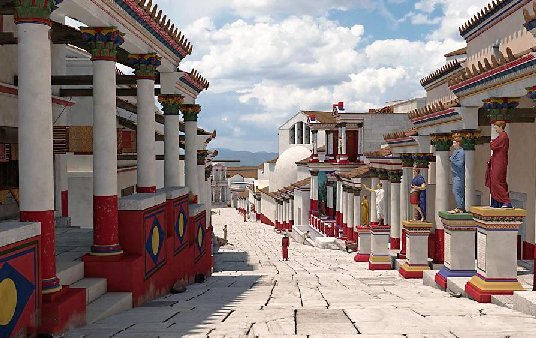
Continued from Part 12
Introduction
Shabbat shalom kol beit Yisra'el and Mishpachah and welcome back to the twelfth part of our study on the Book of Revelation and to the sixth congregation in the series of seven.
Sixth City in John's Circuit
From Sardis, the ancient capital of Lydia that was conquered by Cyrus, also conqueror of Babylon, we continue in a south-easterly direction for 27 miles (44 km) until we come to the city of Philadelphia, the last-but-one of the seven cities of the Roman Province of Asia listed in Revelation 1:11 and part of the apostle John's circuit. Today it lies beneath the modern-day Turkish city of Alaşesir (Alashesir) and for that reason has never been systematically excavated so what we know about it is more limited than some of the other great cities we have been examining.
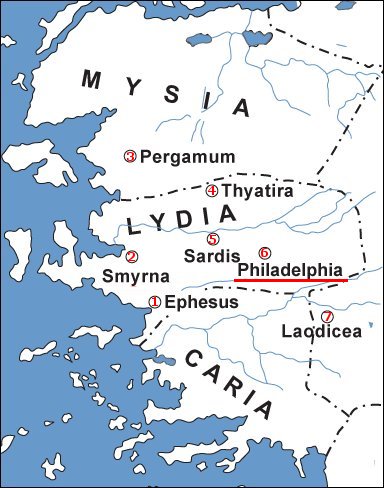
The Origins of the Name Philadelphia
What we do know is that the city was founded in 189 BC by Pergamum King Eumenes who named it 'Philadelphia' in honour of the love he had for his brother, Attalus. 'Philadelphia' is a compound of two words, philos (beloved, dear) and adelphos (brother, brotherly) and in Greek means the 'City of Brotherly Love'. It's a name you will have heard of a lot, particularly if you are a 'Pentecostal' because many of their congregations use this name. And Americans in particular know Philadelphia as the largest of the cities in the Commonwealth of Pennsylvania and the sixth most populated city in the USA with over 1½ million people. It was named after the Asian city we will be studying today because its founder, Englishman William Penn, who as a Quaker, had experienced religious persecution and wanted his colony to be where people could worship freely.
Reconstruction of a Street in Philadelphia
You'll understand from today's picture (see above), which is a restoration of Curetes Street, why ancient Philadelphia was sometimes referred to as 'Little Athens'. Just look at all the pagan temples and public buildings which adorned it. It was certainly a spectacularly beautiful place.
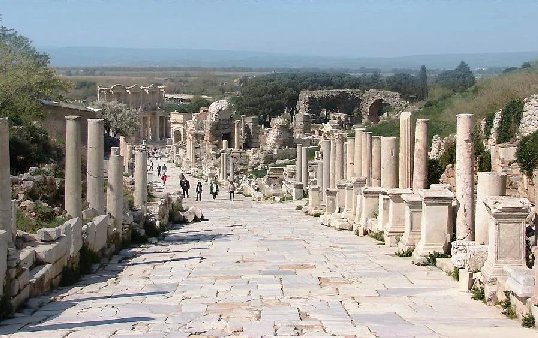 Curetes Street, Philadelphia, as it appears today
Curetes Street, Philadelphia, as it appears today
History
As the last king of Pergamum, Attalus III, lacked an heir, He left the city in his will to the Roman Empire, so when Rome's Asia Province was created in 129 BC by bringing together Ionia (with Ephesus, and Smyrna) and Attalus' former kingdom, Philadelphia found itself as one of that province's major cities. It's perhaps best known for the quality of its wine, which is mentioned by the Roman poet Virgil, as the land on one side of the city was fertile enough to grow grapes. Unfortunately the city lies on the Anatolian fault line so has had several devastating earthquakes in its history, experiencing one of its worst during the reign of Emperor Tiberias (AD 17), which destroyed several Asiatic cities along with Philadelphia. As a result, the Emperor exempted the city from taxes and gave it a special grant so it could be reconstructed. It was rebuilt and became prosperous again, remaining so into Byzantine times. The city was captured by the Seljuk Turks by the 11th century, and even though it was briefly recovered by the Eastern Roman Emperor, Alexius I, the city would continue as a prize among the warring forces until it was finally taken by the Turks in 1338 and became Alaşehir, meaning 'City of Allah'.
A Second Letter by Ignatius?
Yehudi (Judahite, Jewish) families moved into Philadelphia and the other cities of Asia Minor during the few centuries before Christ. The apostles Paul and John laboured here. In the 2nd century, Ignatius of Syrian Antioch (not the nearby Pisidian Antioch) visited Philadelphia and on his way to Rome and martyrdom, while at Troas (Troy), wrote his 'Letter to the Philadelphians', and though it was obviously written quickly while he was 'on the move', it is worth the read as it gives you a 'feel' of what the 2nd century Messianic Community (Church) was like and what the important issues were to them. This letter was written shortly before his martyrdom in either 107 or 115 AD. This would have been no later that 10-20 years after the apostle John died so it's very close in time to today's letter from Yah'shua (Jesus) in the Book of Revelation which we are going to study. In other words, Ignatius would have been close to John's circle, like Polycarp and others who carried on the apostolic witness. So the fact that we have two letters to this city's Christian/Messianic assembly, as we do to Smyrna, makes it and Ignatius' letter to Smyrna, unique of the seven. I had planned to read it to you today but there is so much controversy over which of the shorter or longer versions of Ignatius' 7 letters are true plus there are other, additional letters purportedly written by him that exist in Latin that are so obviously false that I need to research this matter out more thoroughly to establish their historicity before sharing this material with you. When we have finished Laodicea next week, hopefully we can take a look at them.
6. THE CONGREGATION AT PHILADELPHIA
Revelation 3:7-13
In the meantime let's plunge right away into today's text which we know to be authentic and find out what spiritual gems it has hidden within it:
7 "And to the malak (messenger, angel) of the assembly (congregation, church) in Philadelphia write, 'These things says He who is qadosh (holy, set-apart), He who is true, 'He who has the key of David, He who opens and no one shuts, and shuts and no one opens. I know your works. See, I have set before you an open door, and no one can shut it; for you have a little strength, have kept My Davar (Word), and have not denied My Name. 9 Indeed I will make those of the synagogue of Satan, who say they are Yehudim (Judahites, Jews) and are not, but lie -- indeed I will make them come and worship before your feet, and to know that I have loved you. 10 Because you have kept My mitzvah (command) to persevere, I also will keep you from the hour of trial which shall come upon the whole world, to test those who dwell on the earth. 11 Behold, I am coming quickly! Hold fast what you have, that no one may take your crown. 12 He who overcomes, I will make him a pillar in the temple of My Elohim (God), and he shall go out no more. And I will write on him the name of My Elohim (God) and the name of the city of My Elohim (God), the New Jerusalem, which comes down out of heaven from My Elohim (God). And I will write on him My new name. 13 He who has an ear, let him hear what the Ruach (Spirit) says to the assemblies (congregations, churches)'" (Rev.3:7-13, NKJV).
The Problem of Earthquakes
How many of you here have ever experienced or been in an earthquake? Like I said, central Turkey as it is now, was notorious for earthquakes in the first century AD as it still is today. To live in Anatolia was hazardous for this reason more, perhaps, than others. Small, poor family homes would probably have escaped most of the destruction of any earthquake but not those magnificent temples and public buildings which you see in the reconstruction (see top of article). Try to imagine those tall pillars shaking, cracking and then buckling as a huge marble pediment came crashing down, a decidedly unsafe place to be, you'd agree.
Overcomers as Pillars
Now picture yourself in the Philadelphian Assembly hearing this letter from Yah'shua (Jesus) read out aloud to you by the pastor or 'angel' of your fellowship, with memories fresh of the last devastating earthquake that struck your city causing temples to collapse, and then hearing Yah'shua (Jesus) promise you that those who overcame or conquered their carnal nature would be made pillars in the temple of the true and living Elohim (God)! What a contrast to the weakness and fallibility of those stone and marble structures of the pagan temples which existed in such large numbers in that city. Only, the pillars of Yahweh's Temple are not made of physical materials, however precious to the inhabitants of the earth, but of living people, with Yah'shua (Jesus) Himself as the foundation. This is the very same imagery used from the earliest days of the proclamation of the Besorah (Gospel, Good News).
 Overcoming believers and community leaders are likened to pillars
Overcoming believers and community leaders are likened to pillars
Conquering Believers are the True Temple
The first believers, partly because of Yah'shua (Jesus) and partly because of the gift of the Ruach (Spirit), regarded themselves as the true Temple, the place where Yahweh, the living Elohim (God) had made His home, vacating the temporary one in Jerusalem and finally causing its burning and demolition in AD 70 as if to make the point of its transience. And yet Zionist Christians and Messianics are supporting the effort by anti-Christ Jews to build another structure of stone in what is now, spiritually-speaking, no longer the City of Sarah, mother of the Promised Seed, but the City of Hagar the bondwoman! (Gal.4:24-25) This is a major step backwards and is simply compounding the denial of who Yah'shua (Jesus) is, and was.
Pillars are Leaders
This idea of people being described as 'pillars' is to be found 40 years earlier when Paul wrote to the Galatians:
"...when James, Cephas (Peter), and John, who seemed to be pillars, perceived the grace that had been given to me (Paul), they gave me and Barnabas the right hand of fellowship, that we should go to the Gentiles and they to the circumcised" (Gal.2:9, NKJV).
To be a 'pillar' is to be a strong, supporting leader, and by extention here in the Book of Revelation, to be one of the overcoming Remnant who were in a minority of all professing Christians/Messianics and still are. The use of that metaphor depends for its force on this idea of the Messianic Community (Church), a fellowship of human beings joined together in Messiah, as the New Temple. And to think outside these terms is to miss the point of the New Covenant altogether ansd return to dead bricks and mortar.
Overcomers and the Priesthood
Those were the leaders in Paul's day but now it is the 'ordinary' believers in Philadelphia, the City of Brotherly Love, far away from Jerusalem and the goings-on there, who are to be 'pillars' - at least, the overcoming ones, which is true of all believers everywhere in all periods of time. They too are 'leaders', in a sense, because they qualify as priesthood material (elders and deacons) whereas the non-overcomers, who are not constant and reliable, do not.
Introducing the Key of David
All of this closely ties in with the comment at the start of the letter which says that Yah'shua (Jesus) possesses the "Key of David" in the same way as that steward appointed over Yahweh's House in Isaiah 22:22 did:
"'Then it shall be in that day,
That I will call My servant Eliakim the son of Hilkiah;
I will clothe him with your robe
And strengthen him with your belt;
I will commit your responsibility into his hand.
He shall be a father to the inhabitants of Jerusalem
And to the house of Judah.
The key of the house of David
I will lay on his shoulder;
So he shall open, and no one shall shut;
And he shall shut, and no one shall open.
I will fasten him as a peg in a secure place,
And he will become a glorious throne to his father's house'"
(Isa.22:20-23, NKJV).
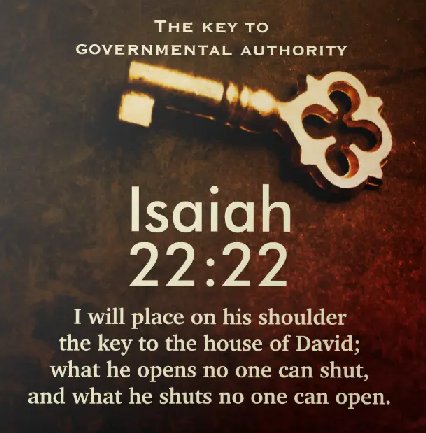
Hilkiah and Yah'shua as Key-Holders
What is this "key" that can open or lock any and every 'door'? And doors to what exactly? The key is a scriptural symbol for kingdom power and authority (Mt.16:19; Rev.1:18). Hilkiah was a court official under King Hezekiah involved in negociations to end Sennacherib's invasion of Judah (2 Ki.18:17-19:7 cp. Is.36:3-37:7). He was in charge of the king's palace. He obtained his 'key of authority' from the legitimate kingly descendant of David, who was then Hezekiah. As the authentic King of Judah and all Israel, Yah'shua (Jesus) came into possession of this Key - this power and authority - as the legitimate (and final) King of [Messianic] Israel which He still holds today in the heavenlies.
False Claimants to the 'Keys'
If you know anything about Mormonism, you will know they are very keen on this topic because they claim the exclusive right to the keys of the Kingdom. In other words, they use this to claim that they are the 'one and only true church upon the face of the earth'...as do the Catholic and Eastern Orthodox and a few other denominations too like the 'New Apostolic Church' to name but one. So clearly, then, this is an important concept to grasp accurately.
The Duplex Ministerium
According to Matthew 16:19, 18:18 and John 20:22-23, the 'power of the keys' operates or functions in the person holding it in two ways:
- 1. By preaching the Gospel of the Kingdom of Elohim (God) which is opened to believers but shuts out the unrepentant; and
- 2. By discipline, with serious offenders being excluded from the Messianic Community (Church) until they repent, whereupon they are readmitted.
In either case - and here's where the controversy arises between the various denominations - forgiveness is mediated through the Messianic Community (Church), acting in the Ruach (Spirit) and through the Davar (Word). This is called the Duplex Ministerium in the Reformation. The important question is this: is this authority vested in an organisation or priesthood in the legalistic sense (as Catholics, Eastern Orthodox, older Protestant denominations, some Messianics and Mormons claim) or in something else (as, for example, a council of elders in each local congregation)?
All Authority is Given to Yah'shua
Now this could - a probably should - be the basis of a sermon all on its own so I will keep this short until we have more time to carefully dissect this issue so let's keep this to the first point only - preaching the Gospel of the Kingdom. Yah'shua (Jesus), to whom "all authority" has been given by the Father (Mt.28:18), as the Royal Davidic King and Cohen Gadol (High Priest) (Heb.2:17, etc.), has opened a door right in front of the Philadelphian qodeshim (saints, set-apart ones), and He is urging them to go through. In going through they become functioning citizens of the Eternal Kingdom which they then demonstrate by living the Constitution and Laws of that Kingdom which is the Torah. It is the interpretation of these laws and their administration that is so often the cause of so much inter-denominational dispute.
Ignatius and Centralised Authority
One of the things that Ignatius stressed, incidentally, was the importance of maintaining unity and not to break up into factions (leading to denominations) which, if the manuscripts we have of his letters have been faithfully transmitted to us and not tampered are reliable, meant willing submission to local Bishop or Overseer, a position that has, sadly, been abused at times over the centuries, in various forms of episcopalianism, leading to a counterfeit kind of unity based on forced acceptance of unrighteous authority and false doctrines. The opposite, though, is anarchy, which is equally problematic. Getting doctrine right and ordaining truly godly men as Bishops and Pastors is therefore key. On the other hand, the lack of a central authority, as the early messianic community (church) was to discover, leads to factions, sects and finally denominations. Finding the right balance between the two has always been the chief problem of all communal systems, religious as well as secular, and has led to discussions on whether the local assembly (and messianic community as a whole) should be steered by democratic decision-making processes or by centralised command. Both have strengths and weaknesses, depending on the persons involved, making this an essentially fallen verses sanctified human issue. The monarchical system is the scriptural ideal but always depends on righteous leadership to work, hence Paul's injunction not to select mature leaders and not to do so too hastily. We'll talk about this more when we come around to discussing Ignatius' teachings.
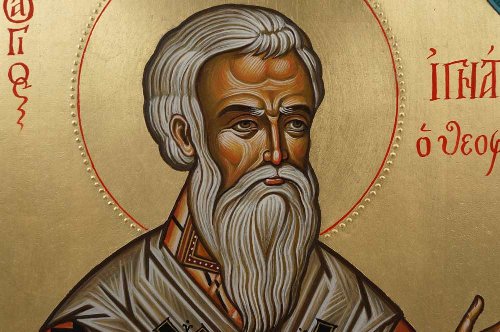 Ignatius of Antioch
Ignatius of Antioch
Standing Firm and Seizing Opportunities
As with Paul's use of the same picture (1 Cor.16:9; 2 Cor.2:12; Col.4:3) the meaning of Yah'shua's (Jesus') instruction to the Philadelphians is almost certainly that they have the opportunity not just to stand firm but to make spiritual advances, to take the Good News of Yah'shua (Jesus) into places and hearts where it has not yet reached. The qualifications are all in place. They have some power, He says - not a lot, but with the backing of Christ they have all they need because the Key of David is the absolute power resident in Messiah whereby His will is expressed in all things both temporal and spiritual. All they have to do is get on board with what they have. And what do they have? They have been faithful, keeping His word and not denying His Name, which implies that there had already been persecution of some sort and they had stood firm in emet (truth). They must take courage and go through the door He has opened for them by grasping the opportunity they have while it is still there.
Identifying and Going Through 'Open Doors'
This is such an important point because we're being told we must be alert to 'open doors' as they present themselves to us and not be afraid to go through them because they will, more likely than not, close if we hesitate or wilfully delay. The point is these 'openings' aren't random but are intentional as part of an overall Divine Plan involving others who, because of their free agency, might only be prepped to receive the Gospel at that special and unique 'door-opening time'. Yah'shua (Jesus) has all this coordinated, something we can never do ourselves because there are just so many elements involved in complex human interactions. Only Elohim (God) can figure out and organise all this as a dynamic, prophetic schematic.
 Yah'shua has the authority to open the door to salvation and opportunities
Yah'shua has the authority to open the door to salvation and opportunities
The Clash With Judaism
But for the Philadelphians there's an obstacle. There's something in the way, reminding us that evil people have agency too. As in most cities of the region, there was almost certainly a significant anti-Messianic Yehudi (Judahite, Jewish) community in Philadelphia, and as we saw recently, nearby Sardis was a major centre of Judaism which was using its civic status to block the advance of the message about Israel's Messiah, Yah'shua (Jesus), a message so very Jewish and yet so challenging to Jewish people. Now don't get the idea that there was one 'church' on a street corner and a rival 'synagogue' on the other side of the road, as we find in many Western cities today. There would have been a Jewish community of several thousand, with its own buildings and community life (as there is in modern Brooklyn in New York), and a small Torah-observant messianic community of about 2 to 3 dozen souls at the most, meeting in one another's homes, holding on to the highly improbable, and extremely risky, claim that the Elohim (God) of Israel had raised Yah'shua (Jesus) from the dead. That's a huge imbalance in numbers and goes some way in explaining what Yah'shua (Jesus) is here saying in His letter. The opposition, at least numerically, is big, with a ratio of Jews to Christians/Messianics from maybe 100-150:1. In these early years, believers were heavily outnumbered not only by pagans but by Jews too. This wasn't completely turned around until much later when communities like Philadelphia became Christian majority cities.
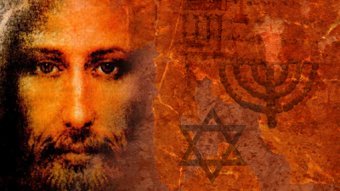 Christianity and Judaism clashed in Philadelphia and elsewhere
Christianity and Judaism clashed in Philadelphia and elsewhere
An Intra-Israelite Dispute
Moreover, verse 9 is much harsher than the equivalent in the Smyrna letter (2:9). Remember, this isn't a Gentile vs. Jewish question because many of the messianic believers would have been Yehudim (Judahites, Jews), converts from the Synagogue to which Paul initially went first before turning to the Gentiles. The question has nothing to do with race, 'antisemitism' or anything like that but rather, which of these two groups can properly claim to be true Yehudim? This is an intra-Israelite dispute. Which of these two groups - the bigger anti-Yah'shua (Jesus) community or the smaller pro-Yah'shua (Jesus) group - can properly claim to be the true 'Jews', bearing the torch of Yahweh's ancient people? This was a common enough question in other parts of first-century Judaism.
All Messiah or Nothing
Here, though, Yah'shua (Jesus) is quite clear. Those who follow Him, the Davidic Messiah, are the true Israelites - Messianic Israelites, the true 'Jews', as it were. Those who deny Him by trying to be in both camps simultaneously (for example - a problem many Messianic and Christian zionists have in our own day) are forfeiting their right to that noble Name. You see, the non-messianic Yehudim (Judahites, Jews) are no longer Israelites. Reject the King and you reject His Kingdom too. In rejecting the true Messiah and King of Israel, they have lost both their name (they're now the sons of Jacob again) and any claim or hopes for a restored Kingdom of Israel. They're on the outside where they originally began before their forefather, Jacob, repented and overcame at the River Jabbok (Gen.32:22-32), even if they are still numerically the overwhelming majority in Philadelphia or elsewhere where Messianics Israelites and Yehudim (Judahites, Jew) live in the same communities.
A Dramatic Rôle-Reversal Will Happen
So how does the Philadelphia letter go beyond the Smyrna one? There is going to be a dramatic reversal of rôles as indeed happened historically with all these seven cities becoming overwhelmingly Christian for 1-2 millennia, dwarfing the local Jewish communities, however large and well-established they were then! In Malachi 1:2 Yahweh declares to rebellious Israel, "I have loved you", contrasting Israel, the descendants of Jacob, with Edom, the descendants of Jacob's brother Esau. Now we have a similar contrast here: the unbelieving synagogue will realise that Yah'shua (Jesus), their own Messiah, has loved this little mixed group of messianic Yehudim (Judahites) and Greeks that believe in Him. And, whereas ancient prophecy has spoken of times when foreign nations would come and bow down before the people of Israel, acknowledging that the one true Elohim (God) was with them, now it's going to be the other way round. Like Joseph's brothers in Genesis 42, the Yehudim (Judahites, Jews) will bow down before the Yah'shua (Jesus) followers whom they had previously despised. Eventually - even if it takes centuries - it will be clear that the true followers of Yah'shua (Jesus) are the ones who can go through the open door, the ones who are to be pillars in the new temple.
Bearers of the New Name
The overcomers are the ones who carry the "new name" because they have changed spiritual direction in life, leaving their old life and old name behind. They also carry "the Name of my Elohim (God = Yahweh)" and "the Name of the city of my Elohim (God), the New Jerusalem" (v.12), meaning that they belong to Yahweh through Messiah and are inheritors and have permanent resident rights in the New Jerusalem. They are getting a triple Name, the "new Name" being a personal name given by the One whom he has declared to be his King and Master (Lord). In other words, the overcomers are to be marked out publicly as Yahweh's people, as Yah'shua's (Jesus') people, as citizens of the city where heaven and earth will be joined forever. No earthquakes there. Security, vindication, and the ultimate reward for patience. The time of trial, the Great Tribulation, is coming to the whole earth (v.10), and like a powerful searchlight it will reveal who is holding on to Yah'shua (Jesus) and His promise of a "crown" (v.11), meaning rulership, and who isn't. The Philadelphia believers are holding on at that moment but they must go on doing so, and 'conquer' or 'overcome' completely when the time comes, because there is always the possibility of falling and losing their salvation if they don't. And so must we.
 The giving of a new name implies a complete change in direction of life
The giving of a new name implies a complete change in direction of life
Summary
To summarise, then: the letter to the assembly (congregation, church) in Philadelphia stresses Yah'shua's (Jesus') messianic authority as the one who holds the all-powerful Kingdom 'key of David'. The Philadelphians are faithful yet weakened through opposition from a local synagogue. Yah'shua (Jesus) offers them a door into His presence, reversal of status from martginalisation to vindication, and defence in the coming trial.
Conclusion
In a couple of days' time we shall reassemble for an important Rosh Chodesh message concerning current events and then a week later we shall again meet for the final sabbath presentation of the seventh congregation at Laodicea. After that we shall make an overview of all we've said, to try and discern the bigger picture, and hopefully dicuss important early 2nd century writers like Ignatius and Polycarp. That will bring us to the Biblical New Year at Aviv 1 - the month of blossoms - and to the Passover Season when we'll take a break from our study of the Book of Revelation and immerse ourselves in the spirit of the spring festivals and whatever words Yah'shua (Jesus) may have for us then. So until next time, Yahweh bless you and keep you in Yah'shua (Jesus)!" Amen.
Continued in Part 14
Acknowledgements
[1] David Abulafia, The Great Sea: A Human History of the Mediterranean (Allen Lane, London: 2011)
[2] Tom Wright, Revelation for Everyone (SPCK, London: 2011)
[3] N.T.Wright & Michael F.Bird, The New Testament in Its World: An Introduction to the History, Literature, and Theology of the First Christians (Zondervan Academic, Grand Rapids, Michigan: 2019)
[4] Eerdmans, ed. David Noel Freedman, Dictionary of the Bible (Eerdmans, Grand Rapids, Michigan: 2000)
[5] Tom Holland, Persian Fire: The First World Empire and the Battle for the West (Abacus, London: 2005)
 Click the image for the whole Series
Click the image for the whole Series

 V328
V328
|


